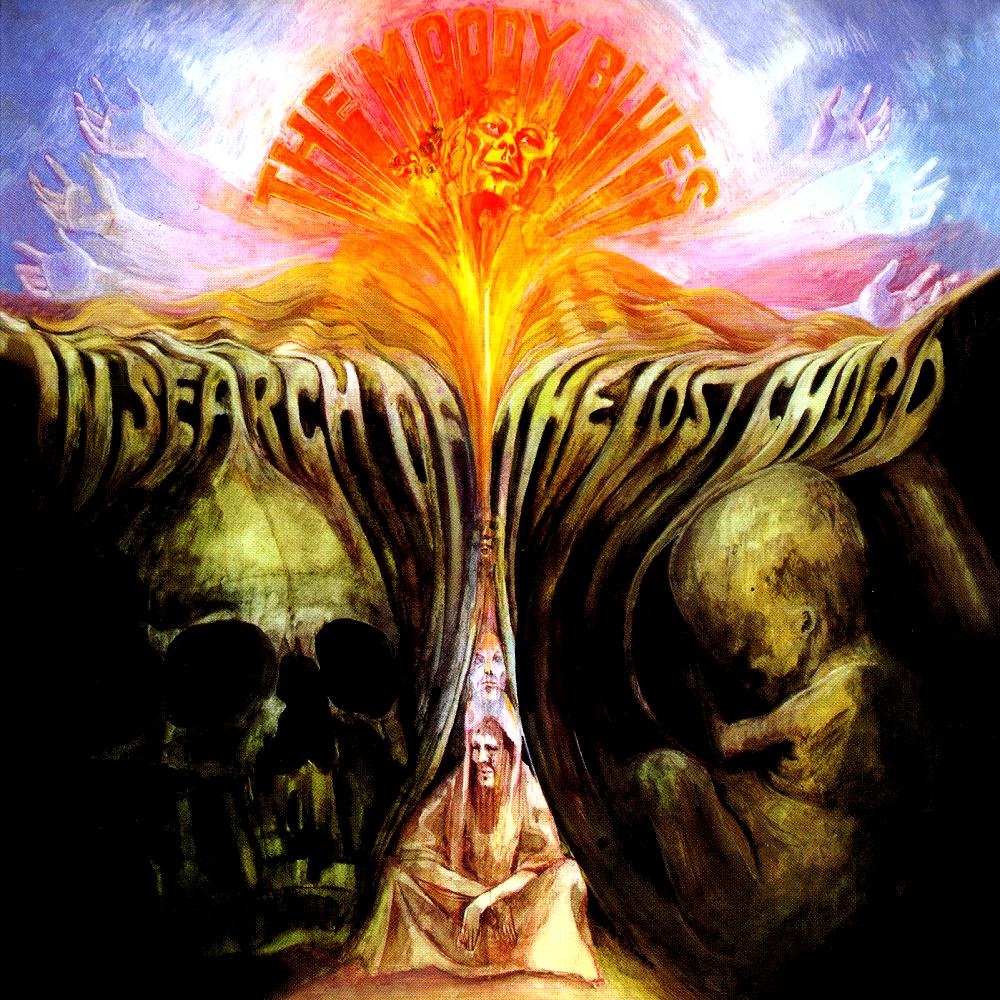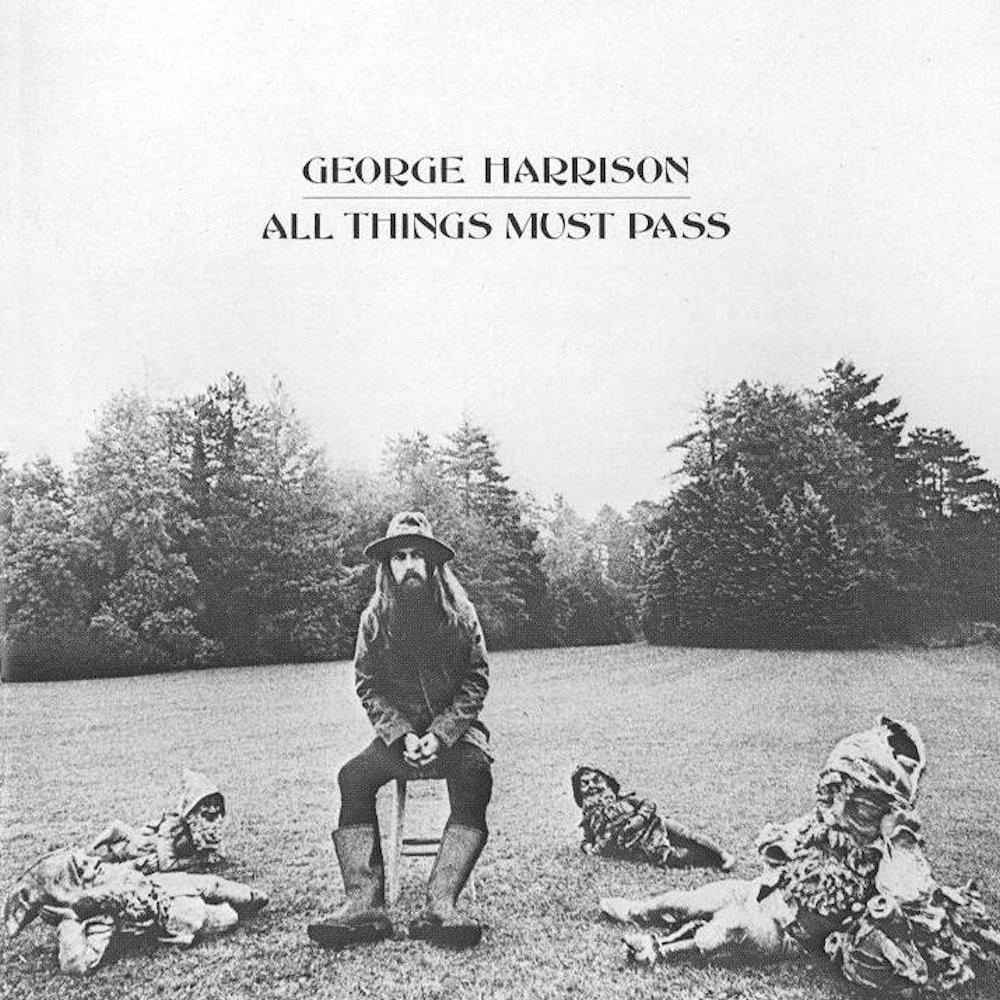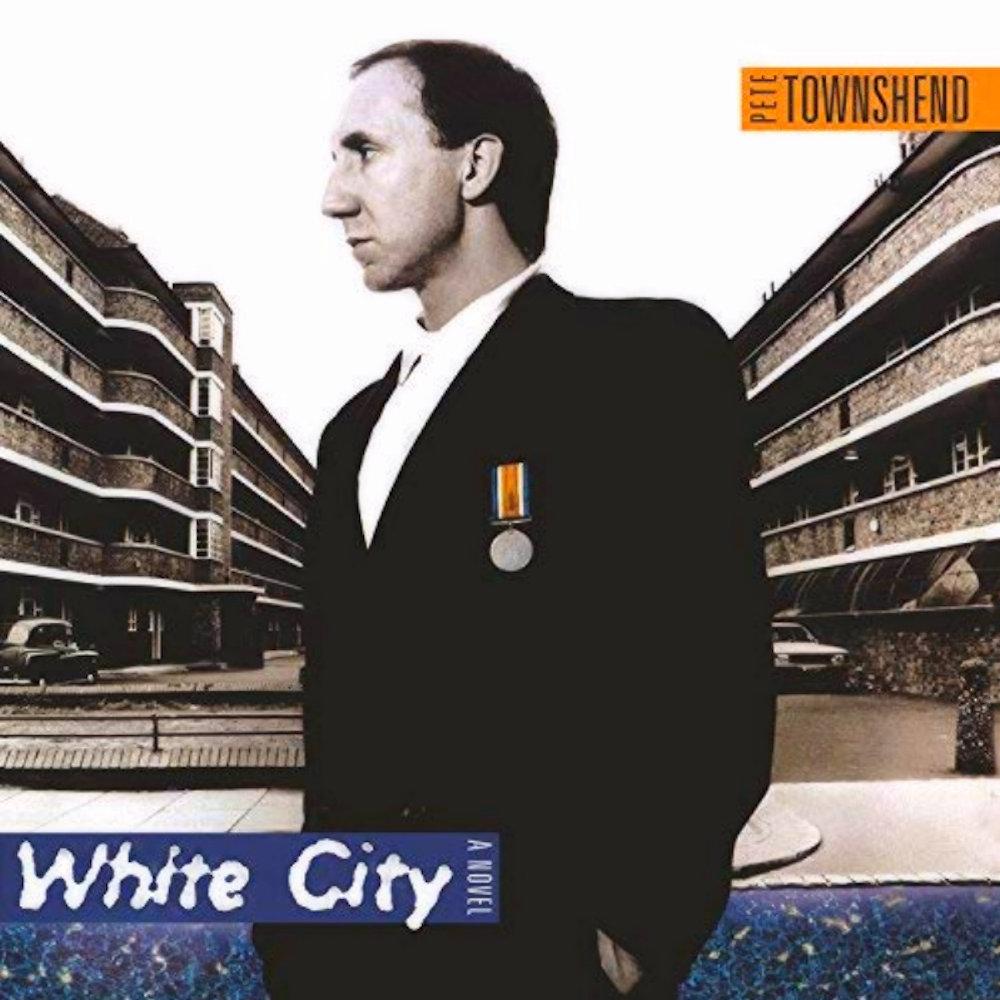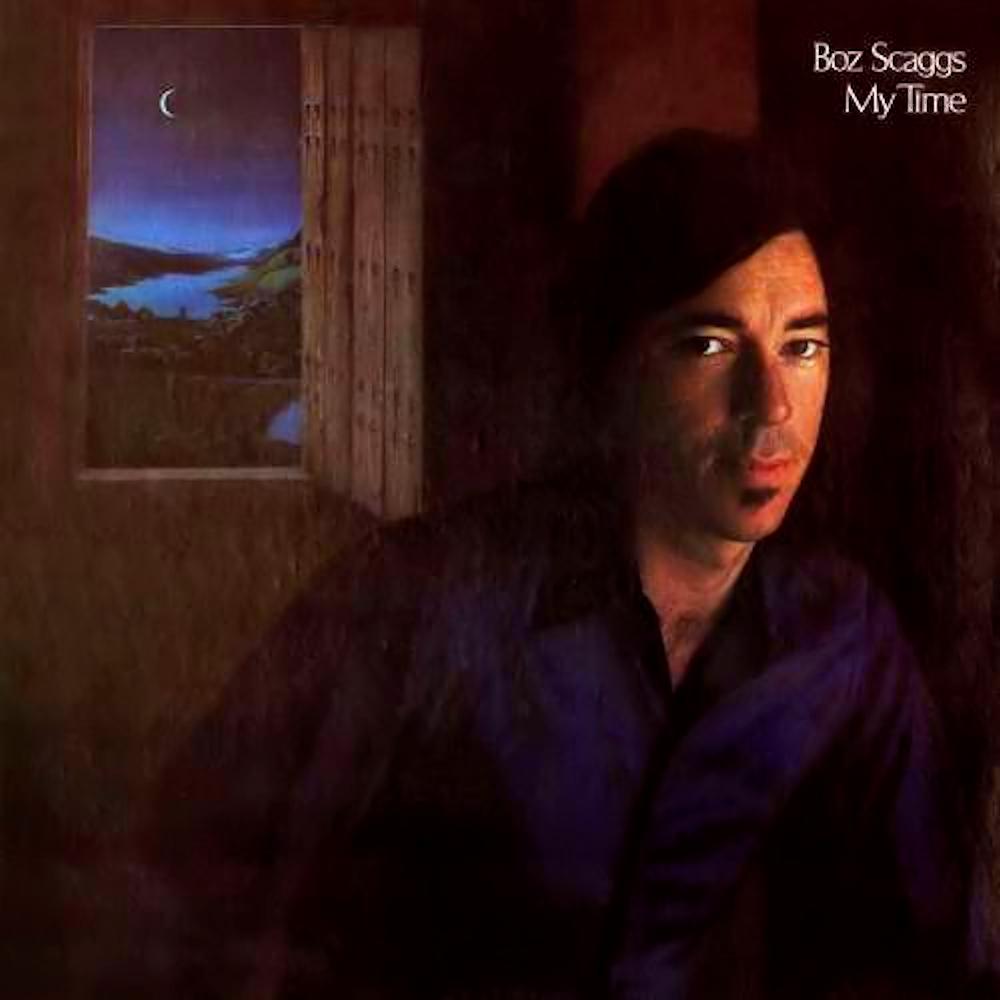
Album Information:
Album ID: 10184
About The Moody Blues:
The Moody Blues is a British rock band that was formed in 1964 in Birmingham, England. The band's original lineup consisted of Ray Thomas, Mike Pinder, Denny Laine, Graeme Edge, and Clint Warwick. They rose to prominence in the late 1960s and early 1970s with their unique blend of rock music and orchestral arrangements and became known for their concept albums and philosophical lyrics.
The Moody Blues released their debut album, 'The Magnificent Moodies,' in 1965, which was primarily a collection of R&B covers. However, the band found their true sound with their second album, 'Days of Future Passed,' which was released in 1967. The album was a critical and commercial success and was a groundbreaking concept album, which featured a symphony orchestra and introduced the band's signature sound of blending rock and classical music. It included hit singles like 'Nights in White Satin' and 'Tuesday Afternoon' which became massive hits.
Throughout the 1970s, The Moody Blues continued to release successful albums and singles, including 'A Question of Balance,' 'Every Good Boy Deserves Favour,' and 'Seventh Sojourn.' In addition, they continued to fuse rock music with orchestral arrangements and remained known for their philosophical lyrics, which explored themes such as spirituality, love, and the human condition. In 1981, the band took a hiatus but returned in 1986 with the album 'The Other Side of Life,' which marked a return to their earlier sound.
Over the years, The Moody Blues have undergone several lineup changes. Mike Pinder left the band in 1978 and was replaced by Patrick Moraz. Clint Warwick was replaced by John Lodge in 1966. The band's most recent album was 'December,' released in 2003, and they are still active today, with Justin Hayward, John Lodge, and Graeme Edge being the only original members still performing.
Overall, The Moody Blues has had a profound impact on the world of rock music, with their unique sound, imaginative concept albums, and thought-provoking lyrics. They were inducted into the Rock and Roll Hall of Fame in 2018, a fitting tribute to a band that truly changed the face of rock music.
About the album In Search Of The Lost Chord:
Ah, In Search Of The Lost Chord by The Moody Blues - a true classic!
Released in 1968, this album is widely considered to be one of The Moody Blues' finest works and a landmark in the psychedelic rock genre. The album features 12 tracks, each exploring different themes and sonic landscapes, all tied together by a common thread of introspection and spiritual exploration.
The album opens with 'Departure,' a trippy instrumental piece that sets the stage for the rest of the record. From there, the listener is taken on a journey through a number of different emotions and moods, from the groovy 'Dr. Livingstone, I Presume' to the serene and contemplative 'Voices In The Sky' and 'Om'.
One of the defining features of In Search Of The Lost Chord is the band's use of eastern instrumentation and philosophies, which are heard in tracks like 'Visions Of Paradise' and 'The Actor'. The album also includes a spoken-word poem, 'House Of Four Doors', which adds to the introspective and philosophical tone of the record.
Musically, the album showcases The Moody Blues' talent for harmonies and intricate instrumental arrangements, with highlights including the layered vocals on 'Legend Of A Mind' and the haunting flute solo on 'The Best Way To Travel'.
Overall, In Search Of The Lost Chord invites the listener on a journey through the mind and soul, exploring themes of self-discovery, transcendence and inner peace. It's a timeless classic of the psychedelic rock era and a must-listen for any fan of the genre.
Members:
The Moody Blues was formed in 1964 in Birmingham, England. The original lineup consisted of five members, but there have been several changes through the years. Here are the key members of the band and their biographies:
1. Justin Hayward - lead vocals, guitar (1966-present)
Justin Hayward joined The Moody Blues in 1966, replacing original vocalist and guitarist Denny Laine. Hayward had previously been a member of the band The Wilde Three. He quickly became the band's primary songwriter, contributing hits such as 'Nights in White Satin,' 'Tuesday Afternoon,' and 'Question.' Hayward has also released several solo albums throughout his career.
2. John Lodge - bass guitar, vocals (1966-present)
John Lodge joined The Moody Blues at the same time as Justin Hayward. Prior to joining the band, Lodge had been a member of a group called The Eagles (not to be confused with the American band of the same name). Along with Hayward, Lodge has been a consistent presence in the band's lineup for over 50 years.
3. Ray Thomas - vocals, flute, percussion (1964-2002)
Ray Thomas was one of the founding members of The Moody Blues. He contributed to the band's early hits, including 'Go Now!' and 'Nights in White Satin.' Thomas was known for his distinctive flute playing, which became a signature sound of the band. He retired from the band in 2002 due to health issues and passed away in 2018.
4. Graeme Edge - drums, percussion (1964-present)
Graeme Edge is the only member of The Moody Blues to have been with the band since its inception. He is known for his poetic spoken-word pieces that have appeared on several of the band's albums, including 'In Search of the Lost Chord' and 'On the Threshold of a Dream.' Edge has also released several solo albums and continues to tour with the band to this day.
5. Mike Pinder - vocals, keyboards, mellotron (1964-1978)
Mike Pinder was another founding member of The Moody Blues. He was responsible for much of the band's early sound, particularly their use of the mellotron, an early electronic keyboard that created a unique orchestral sound. Pinder left the band in 1978 and has since released several solo albums. He is also known for his work as a producer and engineer for other musicians.
Track List for In Search Of The Lost Chord:
1. 'Departure' (0:44) - The album begins with a brief instrumental piece featuring a spoken word chant. The ethereal and mystical atmosphere sets the stage for the other tracks to follow.
2. 'Ride My See-Saw' (3:37) - A catchy and upbeat rock song with heavy guitar riffs and dynamic vocals. The lyrics deal with the ups and downs of life and the constant search for balance.
3. 'Dr. Livingstone, I Presume' (2:58) - This track merges Eastern and Western musical influences, featuring a sitar and a flute. The lyrics tell the story of Dr. Livingstone's exploration of Africa and his meeting with journalist and adventurer Henry Morton Stanley.
4. 'House of Four Doors' (4:12) - A haunting track with a dreamlike quality, featuring hauntingly beautiful vocals and intricate guitar work. The four doors of the title refer to the many paths one can choose in life.
5. 'Legend of a Mind' (6:37) - This ode to Timothy Leary, a prominent figure in the 1960s counterculture, features a psychedelic sound and trippy lyrics. The track also includes a captivating flute solo and an extended spoken word section.
6. 'House of Four Doors - Part Two' (1:43) - A shorter, more upbeat version of 'House of Four Doors' that features more prominent piano and vocal harmonies.
7. 'Voices in the Sky' (3:32) - A beautiful ballad with tender vocals and delicate instrumentation. The lyrics describe the comfort and assurance one can find in the presence of a loved one.
8. 'The Best Way to Travel' (3:14) - This upbeat track features a driving rhythm and a catchy chorus. The lyrics encourage listeners to expand their horizons and seek new experiences.
9. 'Visions of Paradise' (4:15) - A haunting track with a darker tone, featuring eerie instrumentals and ominous vocals. The lyrics describe a utopian world that is both beautiful and foreboding.
10. 'The Actor' (4:39) - A somber ballad with a heartfelt vocal performance and introspective lyrics. The music features lush orchestration and a memorable guitar solo.
11. 'The Word' (0:49) - A brief spoken word interlude that offers abstract musings on the concept of language.
12. 'Om' (5:27) - The album's closing track is a meditation on the sound and meaning of the sacred word 'Om.' The music combines a hypnotic rhythm with choral vocals and Eastern instrumentation.
Discography for The Moody Blues:
Albums:
1. The Magnificent Moodies (1965)
2. Days of Future Passed (1967)
3. In Search of the Lost Chord (1968)
4. On the Threshold of a Dream (1969)
5. To Our Children's Children's Children (1969)
6. A Question of Balance (1970)
7. Every Good Boy Deserves Favour (1971)
8. Seventh Sojourn (1972)
9. Caught Live + 5 (1977)
10. Octave (1978)
11. Long Distance Voyager (1981)
12. The Present (1983)
13. The Other Side of Life (1986)
14. Sur la Mer (1988)
15. Keys of the Kingdom (1991)
16. Strange Times (1999)
17. December (2003)
18. December Again (2003)
19. Lovely to See You: Live (2005)
20. Live at the Isle of Wight Festival 1970 (2008)
21. Live at the Royal Albert Hall with the World Festival Orchestra (2008)
22. Playlist Plus (2008)
23. The Lost Chord (recorded in 1968, released in 2018)
Singles:
1. 'Lose Your Money (But Don't Lose Your Mind)' / 'Steal Your Heart Away' (1964)
2. 'Go Now' / 'It's Easy Child' (1964)
3. 'From the Bottom of My Heart' / 'And My Baby's Gone' (1965)
4. 'Everyday' / 'You Don't (All the Time)' (1965)
5. 'Boulevard de la Madeleine' / 'This Is My House (But Nobody Calls)' (1966)
6. 'This Is My House (But Nobody Calls)' / 'People Gotta Go' (1966)
7. 'Fly Me High' / 'Really Haven't Got the Time' (1967)
8. 'Love and Beauty' / 'Leave This Man Alone' (1967)
9. 'Leave This Man Alone' / 'The Best Way to Travel' (1967)
10. 'Nights in White Satin' / 'Cities' (1967)
11. 'Voices in the Sky' / 'The Best Way to Travel' (1968)
12. 'Ride My See-Saw' / 'A Simple Game' (1968)
13. 'Never Comes the Day' / 'So Deep Within You' (1969)
14. 'Question' / 'Candle of Life' (1970)
15. 'Melancholy Man' / 'The Afternoon: Forever Afternoon (Tuesday?)' (1970)
16. 'The Story in Your Eyes' / 'My Song' (1971)
17. 'Isn't Life Strange' / 'After You Came' (1972)
18. 'I'm Just a Singer (In a Rock and Roll Band)' / 'For My Lady' (1972)
19. 'Emily's Song' / 'New Horizons' (1972)
20. 'Blue Guitar' / 'Driftwood' (1975)
21. 'Steppin' in a Slide Zone' / 'I'll Be Level With You' (1978)
22. 'Driftwood' / 'Forever Autumn' (1978)
23. 'The Voice' / '22,000 Days' (1981)
24. 'Gemini Dream' / 'Painted Smile' (1981)
25. 'Talking Out of Turn' / 'Veteran Cosmic Rocker' (1981)
26. 'Blue World' / 'Going Nowhere' (1983)
27. 'Sitting at the Wheel' / 'Going Nowhere' (1983)
28. 'Your Wildest Dreams' / 'Talkin' Talkin' (1986)
29. 'The Other Side of Life' / 'The Spirit' (1986)
30. 'I Know You're Out There Somewhere' / 'Miracle' (1988)
31. 'No More Lies' / 'Palace of Love' (1988)
32. 'Say It With Love' / 'Lean on Me (Tonight)' (1991)
33. 'Bless the Wings (That Bring You Back)' / 'Is This Heaven?' (1991)
34. 'English Sunset' / 'Haunted' (1999)
Other Releases:
1. Boulevard de la Madeleine (EP) (1966)
2. Go Now – The Moody Blues #1 (Compilation) (1988)
3. Time Traveller (Box Set) (1994)
4. The Singles+ (Compilation) (2001)
5. Gold (Compilation) (2005)
6. The Moody Blues Collection (Compilation) (2009)


 Last Played: 11/01/24 06:31 AM
Last Played: 11/01/24 06:31 AM Last Played: 11/01/24 06:28 AM
Last Played: 11/01/24 06:28 AM